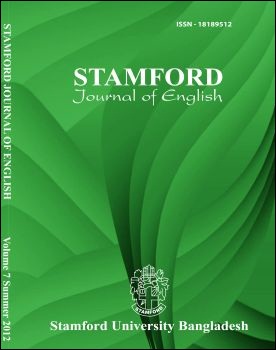Speaking Assessment at Secondary and Higher Secondary Levels and Students Deficiency in Speaking Skill: A Study to Find Interdependence
DOI:
https://doi.org/10.3329/sje.v7i0.14476Keywords:
Speaking Assessment, Deficiency, InterdependenceAbstract
For a comprehensive development of students communication skills, reading, writing, listening and speaking are equally important to be emphasized. At the learning process, assessment is the final step where the learners get feedback of what they have been taught and how much they have learned. The study aims to show the current approach of assessing students English speaking skill (the most important medium of communication) at the Secondary and Higher Secondary levels, and how far this approach helps students develop language skills. Finally, the study intends to find out the reason of students reluctance in improving English speaking skill and evaluate their sufferings at the tertiary level. A survey was conducted among one hundred students of three private universities. Majority of them have come from Bangla medium institutions. The syllabuses (2008), text books and question papers (2006 to 2010) are used as reference for this study. The research was exploratory and three private universities of Dhaka city were selected as study area. Irrespective of the discipline of the study, 100 students were interviewed through a structured questionnaire. The academic practice of the students in secondary and higher secondary levels was portrayed retrospectively and the obstacles they were facing at the tertiary level were analysed according to the objective of the study. This is also a finding which shows a rift between the objective of introducing Communicative Language Teaching (CLT) and the assessment technique followed by National Curriculum and Text Books Board.
DOI: http://dx.doi.org/10.3329/sje.v7i0.14476
Stamford Journal of English; Volume 7; Page 234-251
Downloads
960
2166

